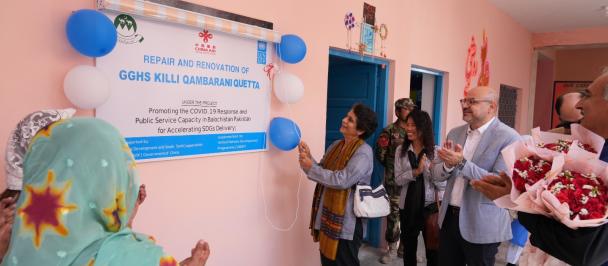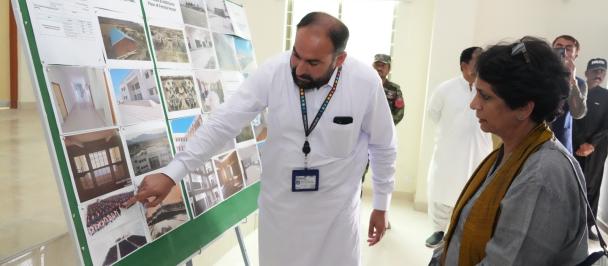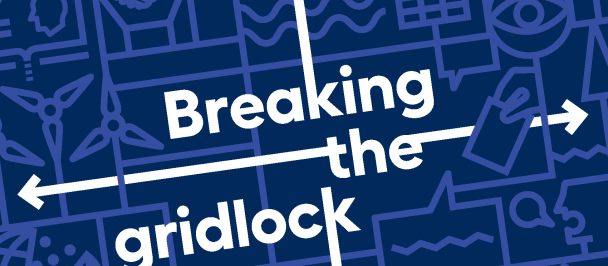Statement of Samuel Rizk, Resident Representative, UNDP Pakistan on International Human Rights Day 2023
December 8, 2023
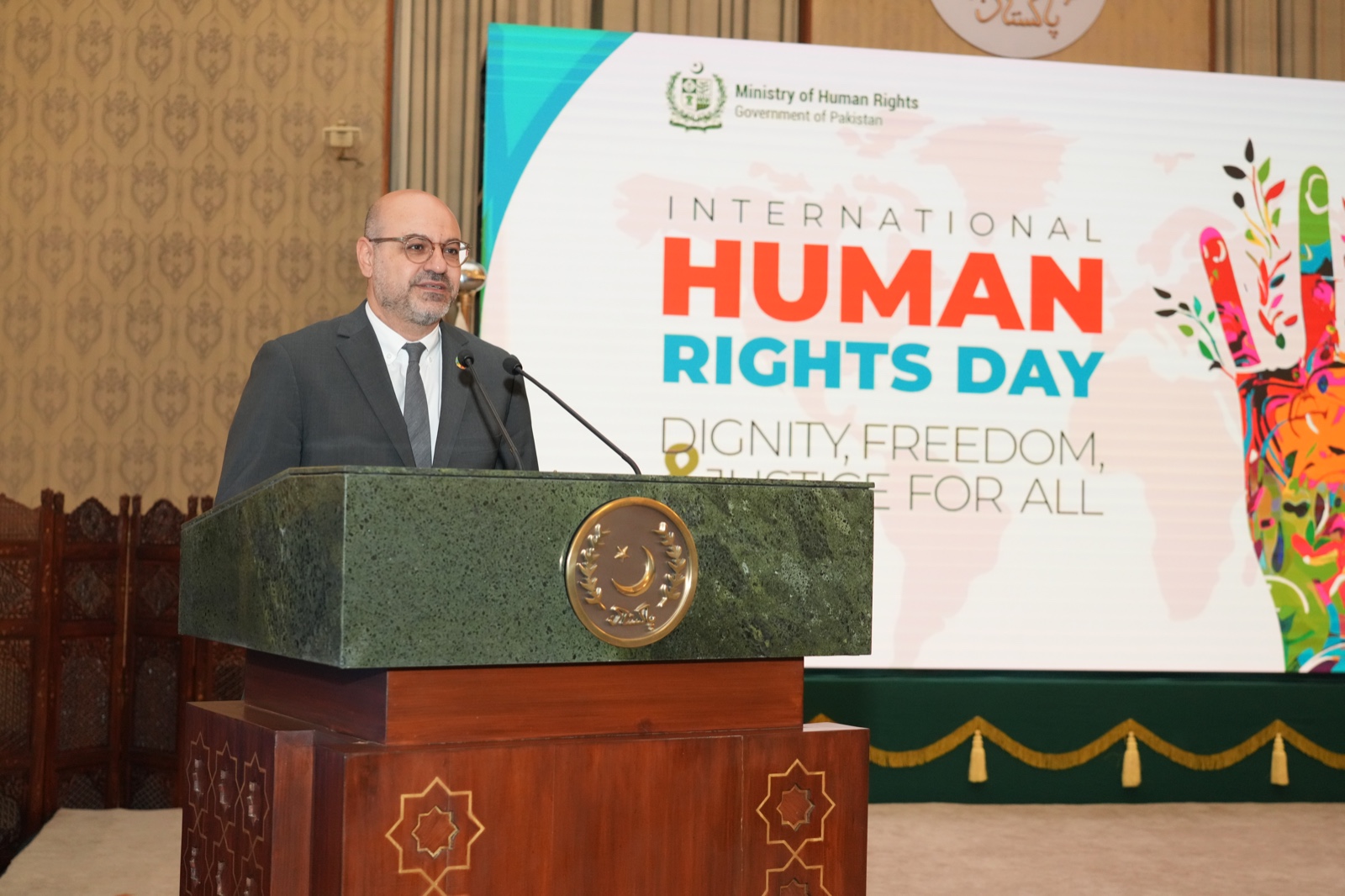
Excellency, the President of Islamic Republic of Pakistan, Dr. Arif Alvi, Honourable Federal Minister for Human Rights, Mr. Khalil George, Respected Chairperson of the National Commission for Human Rights, Ms. Rabiya Javeri, Respected Secretary, Ministry of Human Rights, Mr. Allah Dino Khowaja, Excellencies, honourable guests, ladies and gentlemen;
I am honored to be here this morning, and to join this important collaboration between The Ministry of Human Rights and the United Nations Development Programme, UNDP.
I would like to begin by recalling and commending the Government of Pakistan’s ongoing efforts in realising its national and international human rights obligations. Pakistan was one of the earliest signatories and key contributors to the development of the Universal Declaration of Human Rights in 1948.
Since then, Pakistan has signed an additional seven core human rights treaties and is a current member of the Human Rights Council. It is one of the first adopters of the Sustainable Development Goals and has undertaken clear policy and political commitments to the international human rights regime and the realization of human rights principles domestically.
But, as we all know, the next step is always the hardest. While Pakistan’s ratification of international human rights treaties reflects its commitment, these legally binding treaties place a critical responsibility on the State to ensure that the rights enshrined in these treaties are respected, not violated. And, where violations do take place, adequate mechanisms for redress of these violations are accessible, timely and effective.
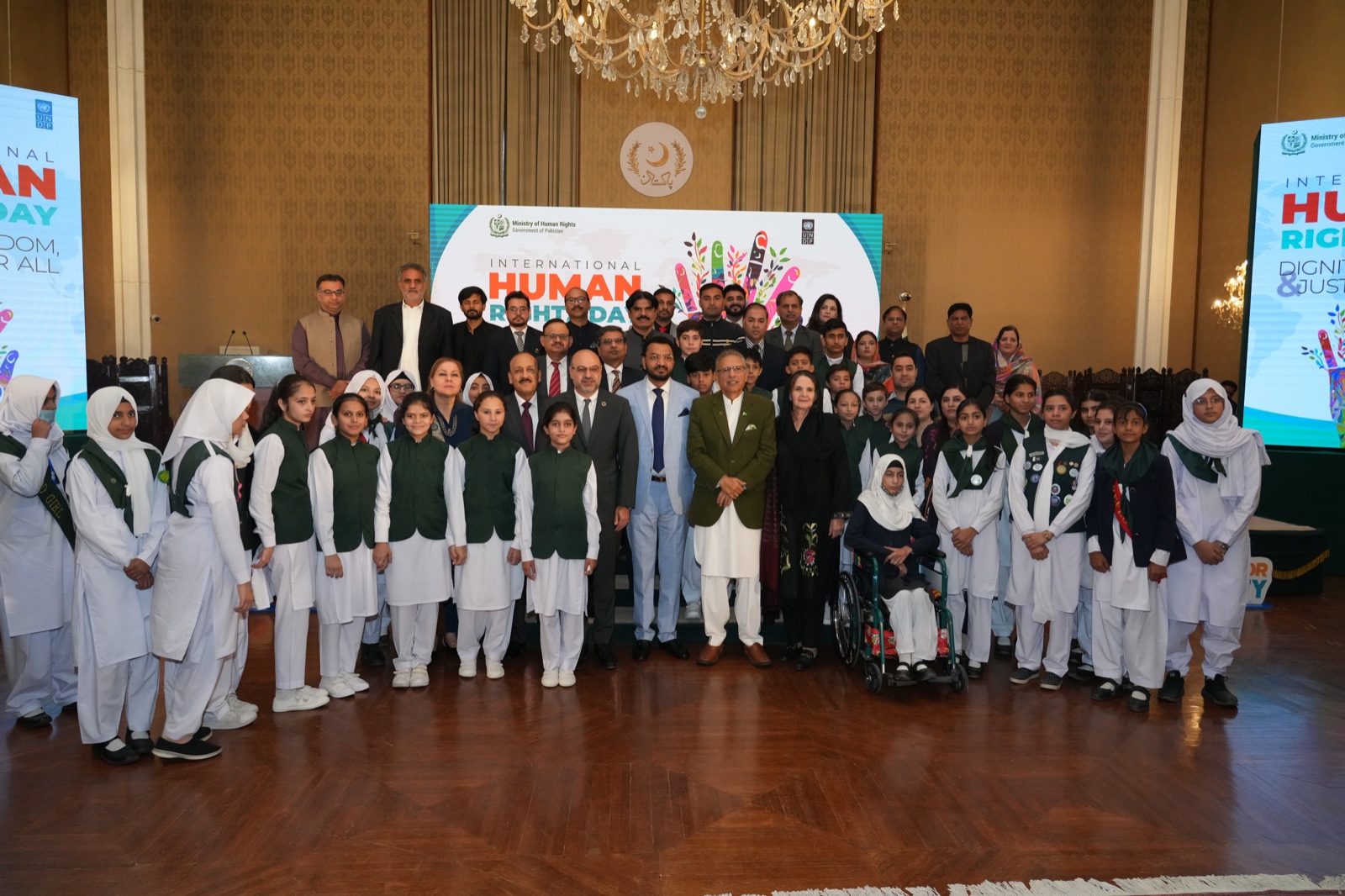
This year’s International Human Rights Day commemoration coincides with the 75th Anniversary of the Universal Declaration of Human Rights (UDHR). But it also coincides with a global political context that is more polarized and less tolerant, where multilateralism is at a breaking point, where charters, treaties and principles are shaken to the core by violence/war/persistent-pervasive inequality, and where individuals seeking protection are at a loss as to where to turn. That is precisely why commemorations or anniversaries are useful reminders of where we started, and what we hoped.
Building on the opening words of the UN Charter ‘…to reaffirm faith in fundamental human rights, in the dignity and worth of the human person…to practice tolerance and live in peace with one another as good neighbours…,’ the Universal Declaration establishes a range of fundamentals that form the bedrock of rights and freedoms for subsequent generations.
“All human beings are born free and equal in dignity and rights,” the declaration states. But honestly, in 2023, 75 years later, are all human beings really free? Free from want, free from fear, and free to live in dignity? This 2023 predicament is far from being only a national question, rather, it is a global, universal question.
It is therefore not surprising that the universality and indivisibility of rights are basically mirrored in the universality and indivisibility of the Sustainable Development Goals. And for human rights champions, many of whom are present today, this is not a chicken or egg situation. Realizing the SDGs cannot be attained without first accepting the fundamental right of all individuals and communities to be free from want, free from fear, and free from indignity.
That is why over the years, UNDP has continually deepened its engagement with Pakistan’s Human Rights Eco-system through its collaboration with the Federal Ministry of Human Rights, the National Commission for Human Rights, other key federal ministries and commissions, provincial departments and human rights institutions, Rule of Law partners, civil society organisations, academia, the media and the private sector. We are committed to accompanying all our national partners toward Freedom, Equality and Justice for All – a journey that brings the country back on track to achieving its SDG ambitions and truly leaves no one behind.
At the mid-point of the 2030 Agenda, with 7 years to go, if we believe that the SDGs are everyone’s responsibility, then it will be vital that all human rights actors commit to an enabling environment – a culture – whereby SDG ambitions will be reached.
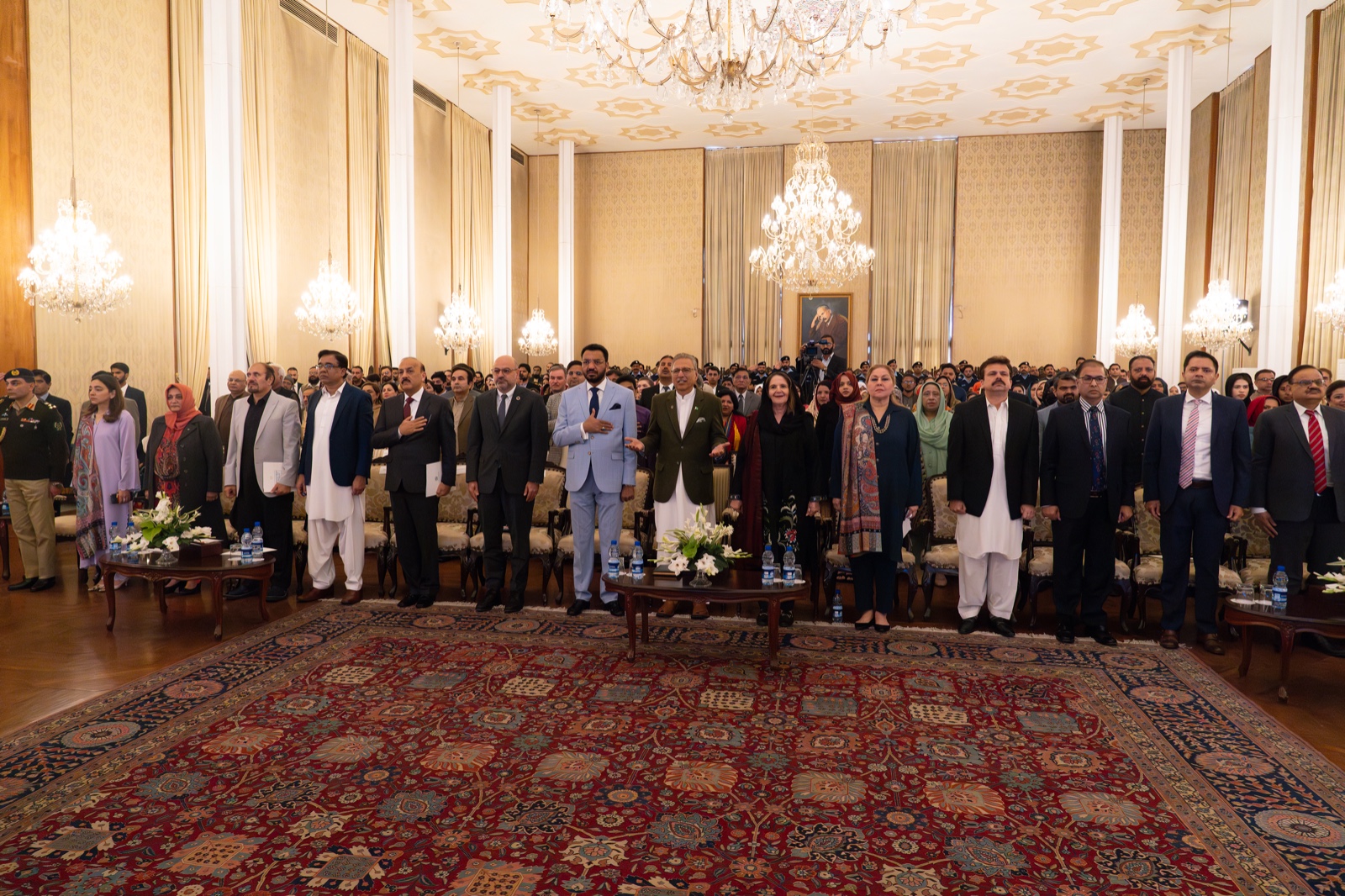
This culture must be a culture of Human Rights, Freedom, Equality and Justice for All. It is a culture as necessary for the most vulnerable and marginalized individuals, as it is for human rights institutions and human rights defenders. It is a culture where affirmative legislative, judicial and rule of law action is matched by financial and human resource investments to national commissions. It is culture where civil society space expands not shrinks, and where civil and political rights are just as important as social, economic, cultural and minority rights.
It is a culture just as relevant to the 20 poorest districts in the country, as it is to Jaranwala, or flood-affected Dadu district in Sindh, or glacial flood-affected public high-school for girls in Brep in Upper Chitral, or local communities near Ghulkin in Gilgit, or women lawyers in Balochistan or a person living with a disability or HIV/AIDS. It is just as relevant to mental health and psychosocial support, information integrity and affordable digital access as it is to decent work, business and human rights, and climate and environmental justice.
It is a culture, and practice that must be universal, inalienable, indivisible, and ultimately irreversible.
On our part, as a member of the UN family in Pakistan, UNDP will continue to answer the UN Secretary-General’s Call to Action for Human Rights, a call that can be one of the most powerful ‘problem-solving’ tools for development challenges, and for SDG achievement.
To maintain the political commitment to rights-based development, the human rights community at large should see the upcoming General Elections as an opportunity to ensure that political parties and candidates do indeed re-commit to the principles and values of freedom, equality, inclusion and justice, not only for their constituents, but to the entire nation.
Once again, I thank his Excellency President Alvi, and the Ministry for Human Rights for co-organising this event, and for championing human rights. And I hope I join most people here in envisioning a time when Human Rights Day is every day, not just December 10.
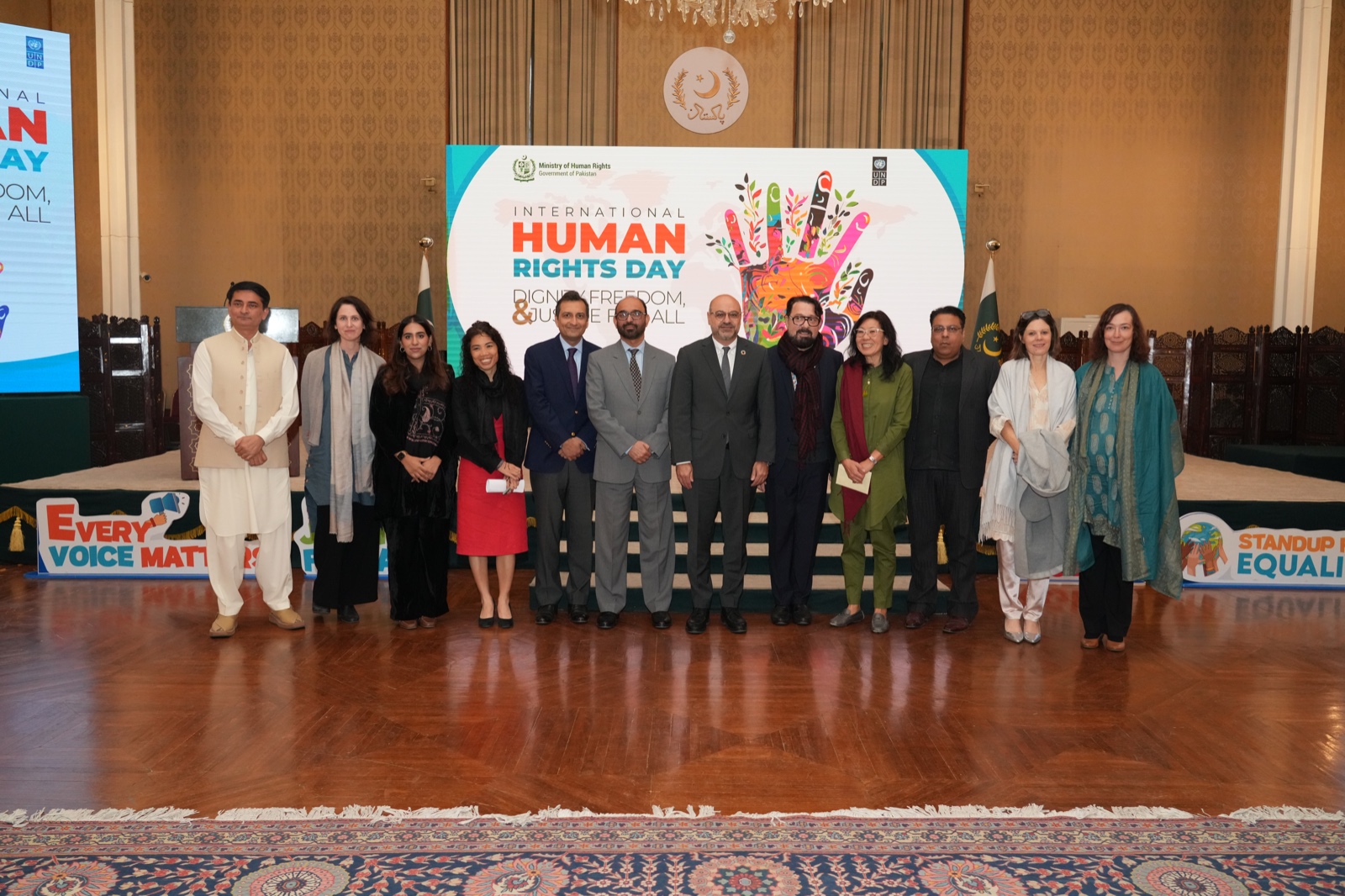

 Locations
Locations